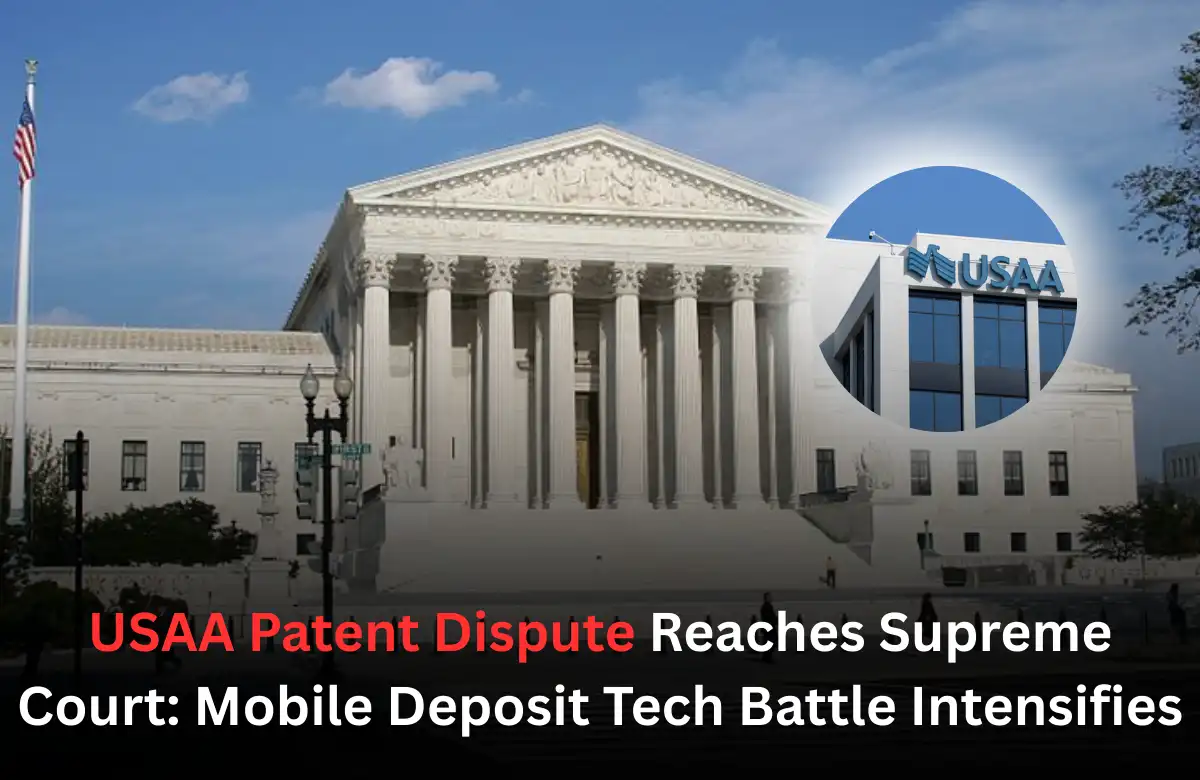
A big patent fight in the United States is making headlines as USAA’s long battle with major banks over mobile check deposit technology reaches the Supreme Court. The key question is whether USAA’s patents represent real innovation or simply cover a basic idea that should not be protected. The outcome of the USAA patent dispute Supreme Court could reshape the future of financial technology patents, deciding if USAA can continue enforcing its rights through licensing deals—or if the patents must be revised, limited, or even thrown out. To understand why this case is so important, what impact it could have on the banking industry, and how it ties into the broader debate over intellectual property rights (IPR), keep reading.
USAA vs. Major Banks: Supreme Court Battle Over Mobile Check Deposit Patents
This dispute centers on remote deposit capture (RDC) technology, commonly known as mobile check deposit—a feature that lets bank customers deposit checks simply by taking photos of them with their smartphones. USAA, a San Antonio–based financial services company, is considered a pioneer of mobile check deposit technology and was among the first to secure patents for it in the early years. Over time, the company built a strong portfolio of more than 150 patents related to mobile deposits and began licensing the technology to banks across the country.
Read Also: SC Verdict in Ericsson and Monsanto Dispute: Patents Act Overrides Competition Law
Why Major Banks Pushed Back Against USAA
The main concern raised by major U.S. banks is that USAA’s mobile check deposit patents are too broad, claiming they cover only a basic idea rather than representing a true technological invention.
Because of this, USAA won several cases, but banks argued that such victories went against the spirit of fair business and seemed unreasonable or even unfair. The main points raised by banks and courts against USAA included:
- Unfair burden – Forcing nearly every bank to pay licensing fees for a common feature.
- Business impact – Creating high costs that could ultimately affect millions of customers.
- Legal principle – Courts questioned whether such patents should exist under U.S. law.
Why PNC’s Case Against USAA Changed the Mobile Deposit Patent Fight
PNC Bank first became a target of USAA’s lawsuits in 2019, when USAA accused it of infringing on several patents covering mobile check deposit technology. USAA claimed PNC was using its remote deposit capture (RDC) innovations without a license, just as it had alleged against other major banks. PNC fought back, arguing that the patents were too broad and described only a basic idea that should not be patented. However, in June 2025, the Federal Circuit Court of Appeals overturned that verdict, ruling the patents invalid under the Alice test for patent eligibility. This decision not only cleared PNC of liability but also gave other banks a stronger defense in similar cases. After this, the USAA took this case to the US Supreme Court.
What’s Next as USAA’s Patent Dispute Reaches the Supreme Court
- In late August 2025, USAA took its fight to the U.S. Supreme Court after losing on appeal.
- USAA says the ruling clashes with earlier cases it won against other banks and creates confusion about how patent law is applied under the Alice test.
- The Supreme Court is expected to decide by February 2026 whether it will hear the case — a move that could set a major precedent for financial technology patents.
Conclusion
The battle between USAA and major U.S. banks over mobile check deposit patents has turned into one of the most important legal fights in financial technology. What started as a series of lawsuits over licensing fees has now reached the Supreme Court, where the outcome could redefine how far patent protection extends in the digital age.
Read Also: China Emerges as Global Leader in Nanotechnology Patents, White Paper Finds
